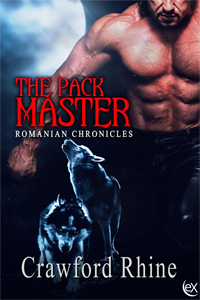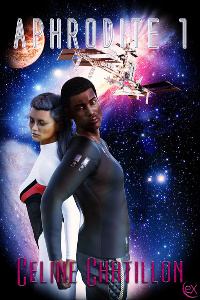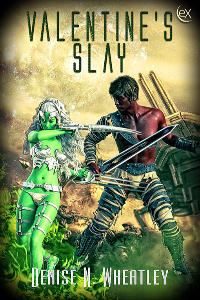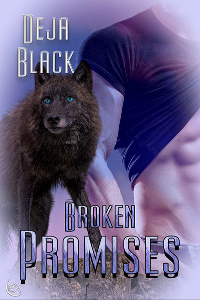Randor Delphin, shy teen prodigy, bio-scientist, and total nerd, lives a lonely, orphaned life on the planet of Malloran, a colony of the now-dead Earth. Malloran has been at war with the neighboring world of Falanar, a warrior planet, but their differences will be set aside if aid is given, as a plague of unknown origin has broken out, and only the scientists of Malloran can help.
Accompanying Randor is Minnara, the daughter of the rulers of that world. As total opposites in character, they don’t get along at all, and to make matters worse, their ship veers off course and crash lands on a distant moon.
Once there, they learn that they need each other in order to survive against the predators of that world, those that are animal, and those more than animal.
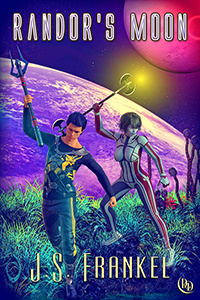
Planet Malloran, summertime. Year eighty, AE—After Earth. Early morning, six AM.
Randor Delphin woke to the sounds of silence, and for the first time in what seemed like forever in his eighteen years of existence, he breathed in the quiet.
With a grunt, he rose from his lumpy and hard cot and did a check on the lab, as it served as his home. It was already hot, and he swiped the sweat from his face, puffed out a few deep breaths, coughed on the ever-present dust, and hoped today would be better than yesterday.
“Yeah, sure it will,” he said, not believing it.
With a sigh, he glanced at the equipment on the table—beakers, slides, needles and reams of paper—and thought about tidying up.
A moment later, he dismissed it. When the bombing began again, it would just get messed up. The room itself was large enough for four people to live there comfortably, but he’d been assigned this place as his own, and he relished his privacy.
“Time to get up and wait,” he murmured.
Wait meant waiting for the sounds of something he both feared and hated—the sounds of war, and the impact and subsequent vibration of the enemy’s missiles that often tossed him from one wall to another when they exploded.
His gray bodysuit lay on his cot. Light in weight and made of memory cloth, it clung to the body like a second skin and had reinforced soles. No one wore boots anymore.
As he slipped the suit on, he prayed that the sounds of the conflict wouldn’t intrude on his quietude. Five seconds…ten seconds…twenty…no noise.
He breathed another sigh of relief. In the past, there’d always been that lull—that certain calm before the storm. It was those blessed moments of peace that gave him hope the war would soon be over.
Cynicism then took over. The military had been saying the same thing for the past four months.
And, of course, after those precious few moments of calm, the serenity would once again be shattered by the wail of the air-raid siren, followed by the sounds of terrified citizens yelling, “Incoming!” It never failed to scare him.
Everyone was scared. They’d already lost so much. The last descendants of Earth now lived on Malloran, located in another galaxy. They’d been at war with another planet, Falanar, and they were losing.
War wasn’t something anyone wanted, but it had come, and now the colonists had to deal with all its ramifications—pain, injury, and death.
Another reality was that Earth was no more and hadn’t been for a long time. Once a brilliantly blue bauble in space, Earth now resembled a cancer, a diseased, festering spot that despoiled the solar system, abandoned by its inhabitants in the year twenty-one-seventy-six.
War, plague, breakdown of the social systems had seen to that, or so Randor had read in the history annals. Mankind had struck out to the stars.
Aided by Naserian propulsion, a nuclear fusion and ion hybrid invented by the late Armand Naserian, Earth’s ships could travel further and faster than ever before. Trips to nearby star systems took only days or weeks, not years.
After searching the heavens for decades, the astronomers had discovered inhabitable planets in the Vega System. Some of the planets welcomed Earth’s survivors.
For the settlers who weren’t accepted, they ventured further and found Malloran, a Class M-4 planet in the Cosmos Redshift Seven galaxy.
Malloran had humanoids living on it, small, mild, and open to the aliens seeking refuge. The planet had abundant nature along with wildlife, and after much parlaying with the natives, Earth’s survivors were allowed to settle there.
Malloran was largely agricultural. The natives tilled their fields and kept their distance, while the settlers studied their language and tried to learn their host’s culture as best they could. It was largely a win-win deal for both sides.
After eighty-something years of unceasing labor, the human’s urban side of Malloran resembled an industrialized North America, something out of the early two-thousands.
Naturally, the earliest settlers had to contend with the usual problems, mainly extreme temperatures of the two seasons, winter and summer, and the predators, large, fast, and deadly. High electrical fences helped to keep them out.
However, pathogens proved to be the greatest predator of all. In the first fifty years, mini-epidemics permeated every single settlement, and those illnesses led to many deaths.
The Malloranians had built up a natural immunity to the viruses on their world. Not so for the Earthers.
Randor’s grandparents, whom he’d never met, had weathered the pathogen storm, but his parents hadn’t been so lucky. They’d died of plague only a year ago when he was seventeen.
It was a horrific and indiscriminate killer, marked by a high fever, boils, swollen tongue, and the melting of the internal organs when the fever reached its peak.
“Similar to Black Plague and Ebola,” the leading scientists said, citing two ancient diseases from the now-gone Earth.
Randor’s parents had also been scientists, and they’d worked frantically to find a cure. Some people, like Randor, had a natural immunity to the disease. Many did not.
Eventually, they’d found a cure, but not before the elder Delphin’s had succumbed to it.
“One year ago,” Randor murmured as he perused his notes. He’d followed in his parents’ footsteps, hoping to become like them.
It wasn’t like he could do much else. Small and slight, quick of movement but with no strength, he was frequently a mark for the bigger, stronger, but dumber kids in his school.
Randor compensated by being smarter, excelling at bio-chemistry, but for kids that age, being physical counted for everything. Being smart didn’t.
He liked spending most of his time in the lab, anyway. After his parents died, he’d come up with the cure for the NPG, the New Black Plague.
Although everyone knew about the passage of Randor’s parents, no one ever spoke to him about it. They had their own problems, and they didn’t really care.
Until Falanar attacked, that is.


